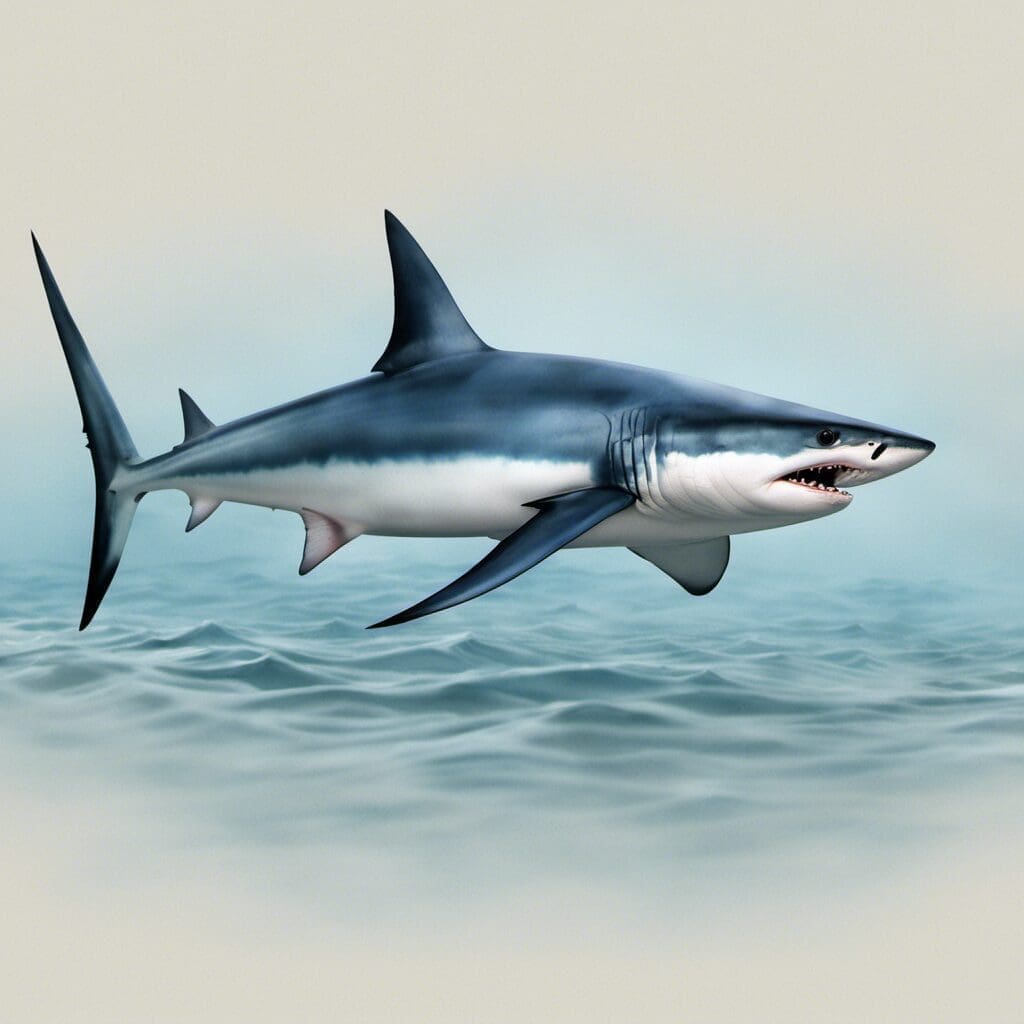Introduction
The shortfin mako shark, scientifically known as Isurus oxyrinchus, is a member of the mackerel or Lamnidae family. A distinctive long, slender and fast-moving predator, the shark species is commonly referred to as the ‘peregrine falcon’ of the shark world due to its speed and hunting prowess.
Conservation Status
Currently, the mako shark is classified as an endangered species. Rampant fishing activities for their widely consumed meat and sought-after fins have spelled a rapid decline in their population. Conservation efforts are in full swing, bolstered by prohibitions on commercial fishing and breeding in captivity.
Statistics
The shortfin mako shark’s size and lifespan are quite impressive:
| Statistic | Average | Range |
|---|---|---|
| Length | 10 ft | 6-15 ft |
| Weight | 1320 lbs | 60-1800 lbs |
| Average Lifespan | 32 years | 25-45 years |
Distribution
Shortfin mako sharks are typically distributed throughout the world’s oceans, with hotter spots in the Indian, Pacific, and Atlantic oceans. They’re also known to undertake extensive migrations spanning thousands of kilometers for reproductive and feeding purposes.
Habitats
A warm water species, the mako prefers temperatures of 17 to 22 degrees Celsius. It’s a pelagic species that exists primarily in offshore waters, yet it could descend down to 490 feet below sea level.
When and Where to See
Shortfin mako sharks are generally a year-round species. Fishing is favorable during the daytime, particularly in the mid-morning and late afternoon.
Best Fishing Locations
Notable fishing locations are:
- San Diego, California
- Puerto Vallarta, Mexico
- Florida Keys, Florida
- Hatteras, North Carolina
- South Australia
- New Zealand
- Portugal
- South of England
- Namibia
- Japan
When hunting for these fishes outside of these areas, look for temperate and tropical offshore waters, ideally in areas of undersea geography that help corral baitfish schools.
How to Catch
Sport fishers favor heavy tackle or trolling with lures and baits like mackerel, ballyhoo or squid. The best time to capture these sharks is during the warmer months, from June through October.
Identification Guide
These sharks are streamlined and slender with long conical snouts and very large stiff dorsal fins. They are metallic blue on top and white underneath. A key feature is the crescent-shaped tail.
Culinary
Mako shark is often grilled or broiled. It boasts a mild flavor and firm texture. The shark’s high protein and low calorie content make it an ideal option for nutritious diets.
Additional Information
Mako sharks are solo hunters, latching onto prey with their sharp teeth. Main threats include excessive fishing and being captured in bycatch. Various cultural references view the shortfin mako as a symbol of speed and agility.
References and Further Reading
For further insights on the shortfin mako shark, check these sources:
Florida Museum
Oceana
National Geographic

